This article was medically reviewed by John Thoppil, MD. Dr. Thoppil is a board certified obstetrician and gynecologist based in Austin, Texas. He leads River Place OB/GYN in Austin and has been voted the Top OB/GYN by Austin Monthly for four years in a row. Dr. Thoppil received his BS from Texas A&M University and his MD from the Baylor College of Medicine.
There are 12 references cited in this article, which can be found at the bottom of the page.
This article has been viewed 254,327 times.
Human Chorionic Gonadotropin, or hCG, is the hormone that a mother’s body makes to prepare for and sustain pregnancy.[1] If you get tested and have a low level of hCG, it may be a sign of an abnormal pregnancy or could mean that you’re not as far along as you thought, that you have an ectopic pregnancy, or that you may have a miscarriage – but don’t be alarmed about one low test result![2] If you're pregnant and have low hGC, work with your doctor to find out the cause, and know that you cannot safely and effectively increase your hCG on your own. hCG can also be given medically to improve fertility for women having trouble getting pregnant.
Steps
Dealing with Low hCG While Pregnant
-
1Discuss your numbers with your OB/GYN. Low levels of hCG may indicate an early pregnancy. Decreasing levels may be cause for concern, but only your doctor can tell you for sure.[3] Before you feel stressed or frightened, have a conversation with your OB/GYN. They will ask you if you’re having any symptoms that might suggest your pregnancy is at risk, like vaginal bleeding or abdominal cramps.[4] Most likely, repeat testing will be done.
- Ask questions like, “Is it possible I’m not as far along in my pregnancy as we believed?”
- If your pregnancy is at risk, your doctor may tell you to rest in bed until things improve. You can also ask if there are any medications safe to take during your pregnancy that might help prevent miscarriage.[5]
-
2Repeat the hCG test. hCG values are usually just used as guidelines, and a single low reading is nothing to worry about. Ask your doctor to check your hCG level again in a couple of days so that you can watch for trends.Advertisement
-
3Have more accurate testing done. If your hCG is low or decreasing on a urine test, have a blood test done – this reads hCG levels more accurately. Depending on the stage of your pregnancy, you may be able to have an ultrasound done to check on your baby. Even after just 5-6 weeks, an ultrasound is more accurate than hCG levels.[6]
-
4Stay away from products claiming to boost hCG. hCG is not a hormone that you can increase or decrease safely by yourself, and keeping a healthy pregnancy depends on a delicate balance of hormones that should be supervised by your doctor. Do not use products claiming to increase hCG. These are not approved by the Food and Drug Administration (FDA), and might actually cause harm to your baby.[7]
Taking hCG to Increase Fertility
-
1Discuss your fertility options with your OB/GYN. Most women who take hCG to help them get pregnant have already tried natural methods to increase fertility, and the drug clomiphene (Serophene). You may be prescribed other medications that promote fertility while taking hCG, such as menotropin and urofollitropin. When talking to your doctor about hCG as an option, be sure to discuss the following:[8]
- Whether you have any allergies to medications, foods, dyes, preservatives, or animals.
- What other medications you’re taking, if any.
- If you use tobacco or drink alcohol.
- If you have any other medical problems, especially unusual vaginal bleeding, asthma, seizures, heart or kidney problems, migraines, ovarian cysts, or uterine fibroids.
-
2Get your hCG injection. The dose of hCG you take will depend on you, the levels of your other hormones, other medications you’re taking, and other factors. The average dose is 5,000-10,000 units. Your doctor will choose the right day to give you the injection based on your hormone levels, and the hCG will be injected into the muscle of your arm.[9]
- hCG injections are NOT given during pregnancy for low hCG levels because of the risk of birth defects.[10]
-
3Follow up with your doctor. Once you start treatment, your doctor might ask you to keep a record of your basal body temperature. You will also need to continue to see your doctor for blood tests, and probably for ultrasounds to monitor your treatment.[11]
Expert Q&A
Did you know you can get expert answers for this article?
Unlock expert answers by supporting wikiHow
-
QuestionHow can I improve my hCG levels?
 John Thoppil, MDDr. Thoppil is a board certified obstetrician and gynecologist based in Austin, Texas. He leads River Place OB/GYN in Austin and has been voted the Top OB/GYN by Austin Monthly for four years in a row. Dr. Thoppil received his BS from Texas A&M University and his MD from the Baylor College of Medicine.
John Thoppil, MDDr. Thoppil is a board certified obstetrician and gynecologist based in Austin, Texas. He leads River Place OB/GYN in Austin and has been voted the Top OB/GYN by Austin Monthly for four years in a row. Dr. Thoppil received his BS from Texas A&M University and his MD from the Baylor College of Medicine.
Board Certified Obstetrician & Gynecologist
Warnings
- High levels of hCG in non-pregnant women may be due to certain kinds of tumors. Be sure to discuss elevated hCG lab results with your doctor if you’re not pregnant.[13]⧼thumbs_response⧽
- Do NOT use products that use hCG as an ingredient to promote weight loss. These are neither safe nor effective.[14]⧼thumbs_response⧽
References
- ↑ http://www.mayomedicallaboratories.com/test-catalog/Clinical+and+Interpretive/80678
- ↑ https://www.bellybelly.com.au/pregnancy/hcg-levels-everything-you-need-to-know/
- ↑ http://americanpregnancy.org/while-pregnant/hcg-levels/
- ↑ http://www.mayoclinic.org/diseases-conditions/pregnancy-loss-miscarriage/symptoms-causes/dxc-20213666
- ↑ http://www.onlymyhealth.com/how-increase-hcg-levels-in-early-pregnancy-1308893441
- ↑ http://americanpregnancy.org/while-pregnant/hcg-levels/
- ↑ http://howtoadult.com/increase-hcg-levels-5700263.html
- ↑ http://www.mayoclinic.org/drugs-supplements/chorionic-gonadotropin-subcutaneous-route-intramuscular-route-injection-route/before-using/drg-20062846
- ↑ http://www.mayoclinic.org/drugs-supplements/chorionic-gonadotropin-subcutaneous-route-intramuscular-route-injection-route/proper-use/drg-20062846
- ↑ https://www.drugs.com/hcg.html
- ↑ http://www.mayoclinic.org/drugs-supplements/chorionic-gonadotropin-subcutaneous-route-intramuscular-route-injection-route/precautions/drg-20062846
- ↑ https://labtestsonline.org/understanding/analytes/hcg/tab/all/
- ↑ http://www.mayomedicallaboratories.com/test-catalog/Clinical+and+Interpretive/80678
- ↑ http://www.mayoclinic.org/healthy-lifestyle/weight-loss/expert-answers/hcg-diet/faq-20058164
About This Article
A low hCG level during your pregnancy can be scary, but by speaking to your doctor and taking further tests, you may be able to find a simple reason for the cause, as well as a safe and effective way to raise your hCG. By talking to your doctor, you may find out that you're not as far along in your pregnancy as you thought, which can be the cause of your low hCG levels. Additionally, a single low reading isn’t a cause for concern, so ask your doctor about repeating the test in a couple of days to see if there is a trend. While it may be tempting to take products that claim to boost hCG, it’s best to avoid them since they could cause harm to your baby. For more tips from our Medical co-author, including how to increase your hCG when trying to get pregnant, keep reading!


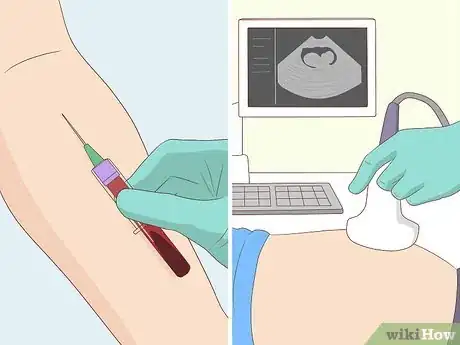
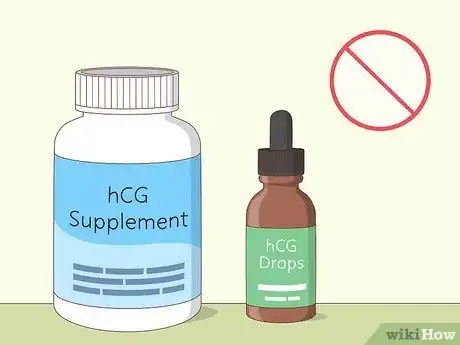
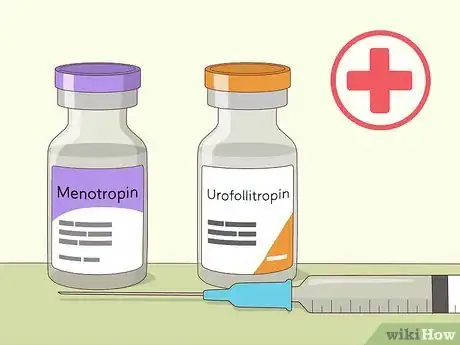

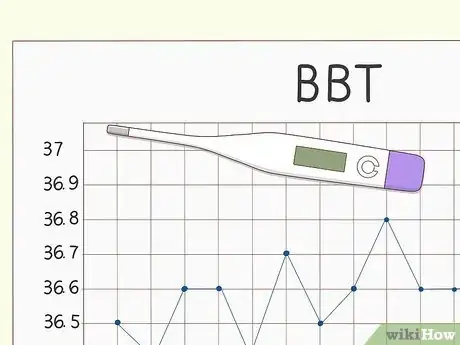






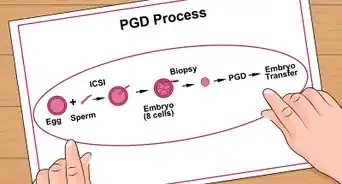






















































Medical Disclaimer
The content of this article is not intended to be a substitute for professional medical advice, examination, diagnosis, or treatment. You should always contact your doctor or other qualified healthcare professional before starting, changing, or stopping any kind of health treatment.
Read More...